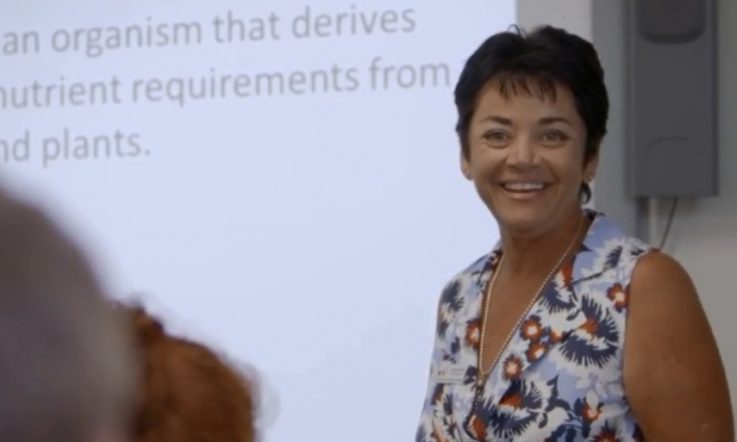Hello, I'm Jo Earp. You're listening to Episode 5 of Teacher's monthly podcast series, The Research Files.
Today we're joined by Associate Professor John Buchanan, of the University of Technology, Sydney, to talk about research he carried out with colleagues into reasons for teachers leaving the profession. Their paper, 'Teacher Retention and Attrition: Views of Early Career Teachers', was published in The Australian Journal of Teacher Education in 2013.
Jo Earp: John Buchanan, welcome to The Research Files.
John Buchanan: Thanks Jo.
JE: First of all then, can you explain a little bit about the aim of the research?
JB: At the time of the research there didn't seem to be a great deal of research information on reasons for teachers leaving the profession, other than some information about teachers who had already left - and by that time it's too late to do anything about it. So, what we sought to do was to investigate practising teachers' intentions about staying in or leaving the profession, with a hope to perhaps modifying conditions if possible before the teacher attrition occurred.
JE: This was just in Australia?
JB: Yes, the jurisdiction was just New South Wales, in state schools, in government schools.
JE: How exactly did you go about it? It was based on interviews wasn't it?
JB: The three main research sources of information were interviews, images and a grid; I'll just explain those briefly. The interviews looked at the kinds of support and help in easing into the profession that teachers found most valuable. We also presented them with a series of images before the interview, partly as an icebreaker (although we didn't really need it in most places) to ask the teachers which one or ones of those images spoke to them most in terms of describing their views of teaching. So, basically asked them to discuss metaphors of teaching – there was one, from memory, of a winding road, there was somebody juggling a lot of skittles, there was one of somebody caring for a young child. So, this was asking them to describe which was closest to their circumstance. Thirdly, we asked them to place themselves on a grid according to support and challenge. So, there were four quadrants – low and high support and challenge.
JE: In terms of just the terminology then, early career teachers - what did you take that to mean? How far into their career were they?
JB: This was begun immediately after they graduated and it went for four years. So, they were all within their first four years of teaching, even by the end of the research period.
JE: Can you take listeners through some of the key findings and conclusions of the research?
JB: ... What we found was that, in the context of high support, the high challenge wasn't too much of a problem. Most of our respondents tended to enter the profession with high ideals of really wanting to make a difference. ... In terms of the kind of support that they wanted, we identified six main things.
First of all was collegiality as I've mentioned, they've wanted not to be left alone ... several of them said that they had difficulty in seeing more senior staff who didn't seem terribly engaged in welcoming them into the profession, or willing to help them by perhaps sharing resources and that sort of thing. In some cases, they even said they looked at older and more experienced teachers who had become quite jaded and cynical and they said 'I don't want to become like that person'. So, I think some intended to leave just so that they wouldn't become cynical.
In terms of student engagement, behaviour management - that was another big issue. Again, if there was support, it seemed to be tolerable unless the behaviour management was of an extreme nature.

John Buchanan [Image: supplied]
... The third issue was working conditions and teaching resources, and it's linked probably with collegiality to some extent. In terms of resources, there didn't seem to be in some schools a great willingness among more experienced teachers to share their resources, to share their teaching ideas, etcetera. So, the new teacher ended up feeling fairly isolated.
Working conditions, I think probably it was mainly second career teachers who noticed that. Some had come from office jobs where there's a very calm atmosphere, pot plants all around the place, and they went to the hurly burly of a school where they were really confronted by what they saw.
... In terms of some of the other issues that the interviewees wanted, they talked about [professional support], so professional development. Some of them said it tended to be fairly piecemeal and not very well articulated, a lot of them said they preferred to go off campus for professional development – I think it was partly so they felt away from their workplace and they could really engage in and concentrate on the matters at hand.
Workload also emerged as a difficulty but, again, several of the teachers said 'I don't mind the long hours'. I think it perhaps surprised them, some perhaps thought that given the face-to-face hours of teaching and the holidays that the actual total hours of work might be less than say a traditional 9 to 5 job; pretty soon they found out that wasn't the case, but for most of them that wouldn't have been a deal breaker. I think they said they were happy to do it as long as they felt that whilst they were preparing late into the evening they could then feel like this could be an effective lesson, the students could appreciate it and that they, the teachers, would feel that they were making progress on behalf of their students.
The sixth issue that we noted was isolation, which occurred in several different ways. There was physical isolation in terms of each teacher just teaching their class, there was geographical isolation, which is in terms of being deployed to relatively small communities which sometimes have less rich environments in terms of options for field trips and excursions, and that sort of thing. The other two forms of isolation were professional, which we sort of talked about in terms of teachers not welcoming them as part of the team, not sharing resources, advice, etcetera. And emotional isolation was just not feeling supported in general.
... There was one seventh issue that we looked at and that was the particular circumstances for casual teachers. We found that, in general, all the problems that face beginning teachers are more acute again for casual teachers.
... Having said that, that perhaps paints a fairly bleak picture. One of the things we did find was, despite some of [this], beginning teachers decided they would probably stay within the profession. Now, that might be for reasons, I'm thinking particularly with more experienced teachers, mid-career or second-career teachers, decided that having invested four years in training they couldn't really have the luxury of going to a third career so they were perhaps stuck there. But, others decided they were determined to exercise their agency and efficiency, they really did believe in teaching and they were going to do what they could, either at their current school or perhaps in another school in years to come, to try and fulfil that destiny. So, we couldn't really quantify what made some teachers decide to stay and some leave in similar circumstances. It may be just personal resilience, amongst other things, but that was an interesting finding from the study or at least emerging question that might warrant further research.
JE: Excellent. That's great, thanks very much for sharing that with Teacher.
JB: Okay. Thanks for that Jo, good to be with you.
For more information on the research discussed in this podcast, and to access other articles and videos, visit www.teachermagazine.com.au. Or, join our community on social media via Facebook and Twitter.
- Make sure you don't miss a Teacher podcast, subscribe for free by visiting acer.ac/teacheritunes or www.soundcloud.com/teacher-ACER.
More information on the research that Associate Professor Buchanan discusses in this podcast can be found in The Australian Journal of Teacher Education.
Buchanan, J.D., Prescott, A.E., Schuck, S.R., Aubusson, P.J., Burke, P.F. & Louviere, J.J. (2013), 'Teacher retention and attrition: Views of early career teachers', The Australian Journal of Teacher education, 38(3), pp. 112-129



